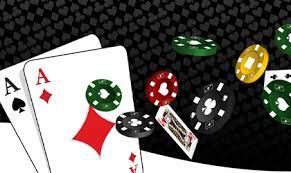With all the T.V. exposure no limit hold has received I have seen a dramatic rise in the number of “Omaha” poker players. Most of these so called “Omaha” players are novices who think poker is about having the best hand. Patience and discipline however, are much more important than position.
Many times I watch novice players do the “all-in” routine on the button or in the cutoff seat and lose half their stack to the big blind, folding like a dog. How many times have you done this, and why?
First, I am not saying that being all-in occasionally is a profitable strategy, but it is important to be consistent. The all-in game is the one in which most players get their chips in with weak hands. This puts you in a difficult position when your opponent shows strength.
Phil Ivey is known for his ability to accumulate chips with very poor hands. He is also known for his attention to detail and his excellent decision making. When you are all-in you should really be ready to fold, unless there are few big blinds or you have very likely made your hand. This puts you in difficult position and demanding mental discipline.
The next problem with being all-in is that it tempts you to play a hand you would be better off folding. Occasionally, you may hit your hand, but this is so infrequent, you will be throwing away money if you develop a big problem with playing hands.
This brings another point that separates Omaha from Hold’em. In Hold’em, you can make a call with 80 chips if you are short stacked. In Omaha, you are stuck with being all-in for your entire stack. This forces you to be more aggressive in multi way pots. It is a plus when you are all-in, as it gives you a much better chance of isolating a player. However, against an all-in player, you are not looking for that type of situation, but rather a way to isolate a single opponent.
This brings us to the point of embargoes in multi way pots. embargoes are usually a good idea in multi way pots, though in Omaha there are certain exceptions. embargoes are best if your goal is to steal the blinds or to get players to fold. In other words, you are trying to make everyone fold. If you have a good hand, you want the blinds to start arriving in your stack. In other words, you want your opponents to help each other out. embargoes work great in Omaha as long as you can keep most of the other players in the game. They don’t want you to try and make everyone fold, though. This is especially true if you have a lot of local players at the table. If you let them get heads up, you can be almost guaranteed to have a better hand than them.
Playing Embargoes
Playing embargoes in Dewapoker should not be something that you do very often. They are not good Omaha hands and can easily backfire. If you are playing in a tournament and happen to be on the button, you should keep an eye on your opponents. If you see that they are playing lots of hands, it is time to go to war.
When you see that your opponents are playing loose, you want to make them pay to continue. If you are in the blind and everyone is folding in front of you, its time to raise. The problem with doing this is that you will consire a lot of players to have small hands. If you always raise with pocket pairs, you will never get any action.
In the late position, you can also raise with small suited cards, if you feel that you have a good hand. If you do this, you will probably get a re-raise. If you make the raise, and you flop top pair, you should keep the pot small, since you are risking more chips on a hand that is not likely to win.
Playing Overcards
If you flop top pair and a lot of other good hands, you should be raising pre-flop. If you do not raise, you will not accomplish anything by forcing people to fold. This is usually the goal. If you have a lot of limpers in front of you, you should limp in if no one has raised. If someone raised, you should either keep limping, or if you are really weak, push all-in.
When you flop a monster hand, you should be doing all the above in quick succession. Its crazy to limp with top pair, especially if there are no other raises in front of you.
This is one of 101 winning plays the pros use to win a poker tournament. To find out more.
